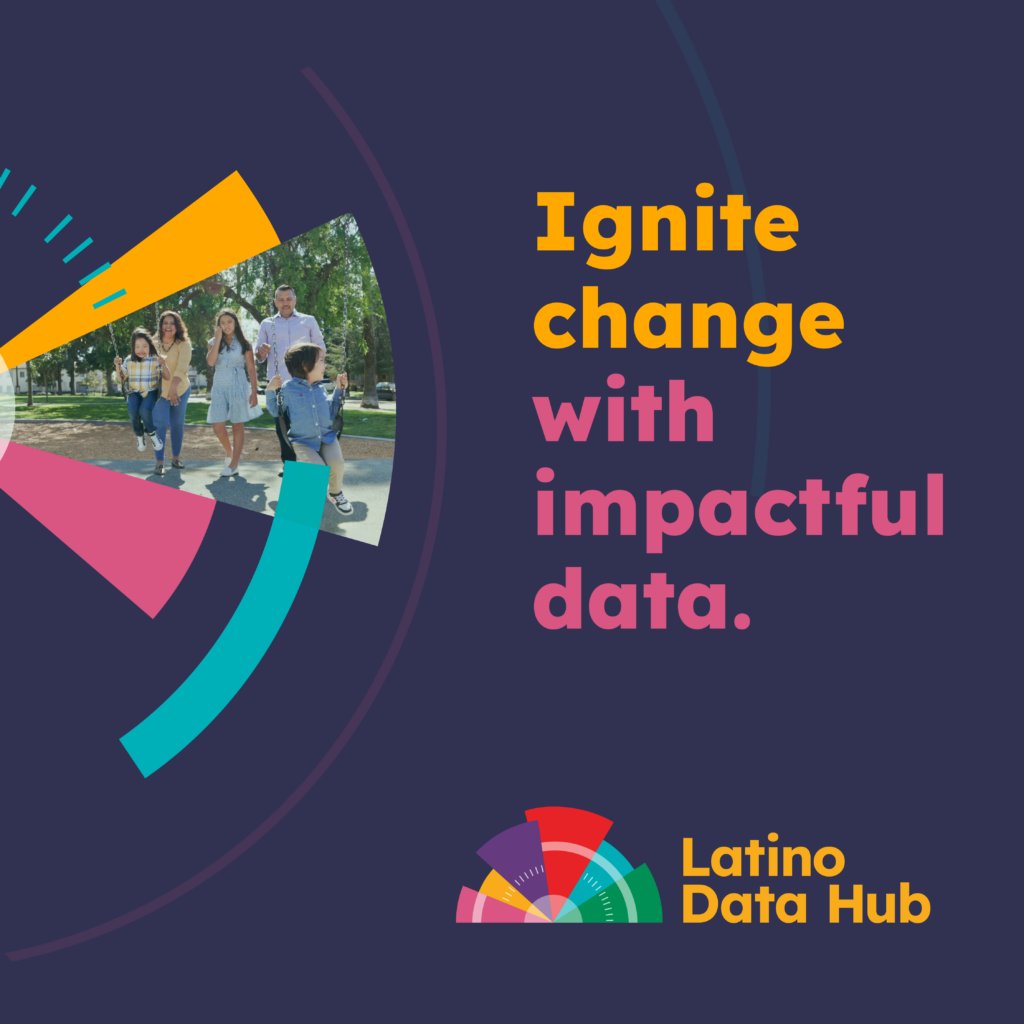CONTACT
Isabel Morales
imorales@fenton.com, (424) 394-4053
UCLA LPPI Launches New Latino Data Hub to Shed Light on Diversity of Latinos in the United States
Transformative digital bilingual tool will empower policymakers, community groups, and philanthropic organizations to make data-informed decisions to foster stronger Latino communities
LOS ANGELES, CA – Today, the UCLA Latino Policy & Politics Institute (UCLA LPPI) announced the launch of its new Latino Data Hub, a transformative new resource designed to change how we understand and support Latino communities in the United States.
This unparalleled resource provides free, reliable, and actionable data in English and Spanish to empower a wide range of stakeholders, including advocates, community agencies, policymakers, elected officials, philanthropists, the media, and researchers. Developed with support from Casey Family Programs and the W.K. Kellogg Foundation, this new digital tool fills a critical information gap, allowing users to tailor their decisions and strategies to the unique needs of Latino communities.
What distinguishes the UCLA LPPI Latino Data Hub is its depth of information on Latino populations, meticulously disaggregated by race, citizenship status, and more. For the first time, stakeholders can access nuanced insights into the well-being of these diverse groups, ensuring policies and initiatives are tailored to address the unique challenges Latinos face.
“UCLA Latino Policy and Politics Institute’s new Latino Data Hub is a testament to the power of data in driving positive change,” said Rodrigo Dominguez-Villegas, UCLA LPPI Director of Research. “Latinos are at the heart of America’s story, and it’s time we had a comprehensive resource that reflects our rich diversity and the unique challenges we face. By equipping advocates, policymakers, and community leaders with the right information, we can help create a better future for Latinos living in the United States. This empowering new data platform is a significant step toward equity and progress, and I’m excited to see the impact it will have.”
Latinos are the fastest-growing segment of the U.S. population, accounting for more than half of the country’s growth in the past decade. Despite this growth, Latino communities continue to face significant disparities in areas such as education, healthcare, income, and political representation. Moreover, these communities are not monolithic; they face different challenges and have different needs.
Using the UCLA Latino Policy & Politics Institute’s Latino Data Hub is easy. Features include:
- Customizable Visualizations: Users can explore and analyze data on a wide range of critical issues, such as demographics, healthcare access, education, income, and employment. The platform allows for in-depth customization, including disaggregated data by sex, race, Latino descent group, citizenship for more than 120 indicators.
- Interdisciplinary Expertise: The data provided is curated by UCLA LPPI’s experienced interdisciplinary researchers, ensuring excellence in accuracy and relevance.
- Key Issue Areas: The platform covers data across ten vital issues for Latinos, including Child Wellbeing, Democracy and Voting, Digital Technology, Education and Language, Employment, Health Insurance, Housing, Income and Poverty, and Transportation.
Users can create a free user profile to save their progress, create interactive maps and graphs, and download data files in English and Spanish. The data is sourced from the U.S. Census Bureau’s 2021 five-year American Community Survey (ACS), and also incorporates voting data provided by the Census Bureau.
The resource has already been instrumental in dispelling myths about the Latino population in the U.S., highlighting nuances across Latino sub-groups, and showing disparities between Latinos and other major racial groups. This data includes:
- Sixty-seven percent of Latinos are U.S. born, not foreign-born as commonly thought. This data reshapes our understanding of the Latino population.
- Latinos have a median age of 29, defying the U.S. median of 38. However, subgroups like Cubans have a median age of 40, showing generational nuances.
- Only 52 percent of Latinos live in an owned home compared to 67 percent of the general population and 76 percent of whites.
By developing this data platform, UCLA LPPI strives to identify opportunities for change for Latino communities, catalyze progress, and create a future where everyone has the opportunity to thrive.
“The more disaggregated data there is, the more you see yourself in it, and your experiences, and the experiences of your families and friends and your community,” said Dominguez-Villegas.
To learn more about the UCLA Latino Policy & Politics Institute’s Latino Data Hub, visit LatinoDataHub.org, or contact info@latinodatahub.org
###
About the UCLA Latino Policy & Politics Institute’s Latino Data Hub
The UCLA Latino Policy & Politics Institute’s Latino Data Hub, the first comprehensive resource of its kind, offers up-to-date, accessible comprehensive data about Latinos living in the U.S. The tool is designed to empower advocates, community leaders, policymakers, elected officials, philanthropic decision-makers, and all other actors of change to tailor their decisions to the unique needs of Latino communities and develop more effective, inclusive policies. To learn more about the resource, visit LatinoDataHub.org or contact info@latinodatahub.org.
About the UCLA Latino Policy & Politics Institute
The UCLA Latino Policy & Politics Institute (UCLA LPPI) believes that there is no American agenda without a Latino agenda. Located in Los Angeles, California, UCLA LPPI addresses the most critical domestic policy challenges facing Latinos and other communities of color through research, advocacy, mobilization, and leadership development to propel policy reforms that expand genuine opportunity for all Americans. The Institute utilizes a multi-pronged approach to ensure Latinos and other communities of color have a seat at the decision-making table and fair opportunities to thrive, including research, mobilization, policy and advocacy. To learn more about UCLA LPPI visit www.latino.ucla.edu









